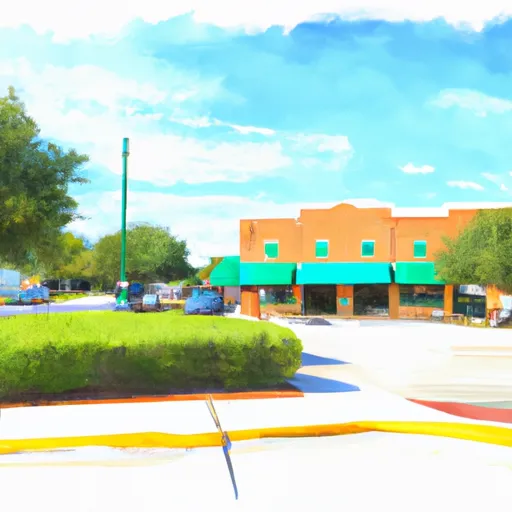-
 Snoflo Premium
Snoflo Premium
Get unlimited access to all our content
With no Ad interruptions! - Start Your Free Trial Login with existing account
Argyle
Eden Index
Climate
7.1
•
Recreation
4.2
•
Community
•
Safeguard
4.3/10

Argyle is a small community located in the panhandle of Florida. The climate in this area is warm and humid, with frequent thunderstorms during the summer months. The hydrology constituents consist of several small rivers and tributaries, including the Choctawhatchee River. Outdoor recreation opportunities in Argyle include fishing, boating, and hiking. The nearby Blackwater River State Forest offers camping and hiking trails, while the Choctawhatchee River provides ample opportunities for kayaking and canoeing. Additionally, the community is close to the Gulf of Mexico, providing access to beaches and water sports. Overall, Argyle's natural beauty and outdoor recreation options make it an attractive destination for visitors and residents alike.
What is the Eden Index?
The Snoflo Eden Index serves as a comprehensive rating system for regions, evaluating their desirability through a holistic assessment of climate health, outdoor recreation opportunities, and natural disaster risk, acknowledging the profound impact of these factors on livability and well-being.
Climate Health Indicator (CHI): 7.1
Argyle receives approximately
1612mm of rain per year,
with humidity levels near 87%
and air temperatures averaging around
19°C.
Argyle has a plant hardyness factor of
8, meaning
plants and agriculture in this region tend to thrive here all year round.
By considering the ideal temperature range, reliable water supplies, clean air, and stable seasonal rain or snowpacks, the Climate Health Indicator (CHI) underscores the significance of a healthy climate as the foundation for quality living.
A healthy climate is paramount for ensuring a high quality of life and livability in a region, fostering both physical well-being and environmental harmony. This can be characterized by ideal temperatures, reliable access to water supplies, clean air, and consistent seasonal rain or snowpacks.
Weather Forecast
Streamflow Conditions
Choctawhatchee
Area Rivers
Choctawhatchee
Snowpack Depths
Choctawhatchee
Reservoir Storage Capacity
Choctawhatchee
Groundwater Levels
Recreational Opportunity Index (ROI): 4.2
The Recreational Opportunity Index (ROI) recognizes the value of outdoor recreational options, such as parks, hiking trails, camping sites, and fishing spots, while acknowledging that climate plays a pivotal role in ensuring the comfort and consistency of these experiences.
Access to outdoor recreational opportunities, encompassing activities such as parks, hiking, camping, and fishing, is crucial for overall well-being, and the climate plays a pivotal role in enabling and enhancing these experiences, ensuring that individuals can engage in nature-based activities comfortably and consistently.
Camping Areas
| Campground | Campsites | Reservations | Toilets | Showers | Elevation |
|---|---|---|---|---|---|
| Grayton Beach State Park | None | 7 ft | |||
| Anniston Army Depot RV Military | None | 635 ft | |||
| Lake Martin Military | None | 514 ft | |||
| Pine Log State Forest | 20 | 59 ft | |||
| Wind Creek State Park | 626 | 520 ft | |||
| Turnipseed Hunter Camp | 10 | 1,172 ft | |||
| Lake Chinnabee | 10 | 829 ft | |||
| Fort Toulouse/Jackson Park | 39 | 167 ft |
Nearby Ski Areas
Catastrophe Safeguard Index (CSI):
The Catastrophe Safeguard Index (CSI) recognizes that natural disaster risk, encompassing floods, fires, hurricanes, and tornadoes, can drastically affect safety and the overall appeal of an area.
The level of natural disaster risk in a region significantly affects safety and the overall livability, with climate change amplifying these risks by potentially increasing the frequency and intensity of events like floods, fires, hurricanes, and tornadoes, thereby posing substantial challenges to community resilience and well-being.
Community Resilience Indicator (CRI):
The Community Resilience Indicator (CRI) recognizes that education, healthcare, and socioeconomics are crucial to the well-being of a region. The CRI acknowledges the profound impact of these elements on residents' overall quality of life. By evaluating educational resources, healthcare accessibility, and economic inclusivity, the index captures the essential aspects that contribute to a thriving community, fostering resident satisfaction, equity, and social cohesion.

